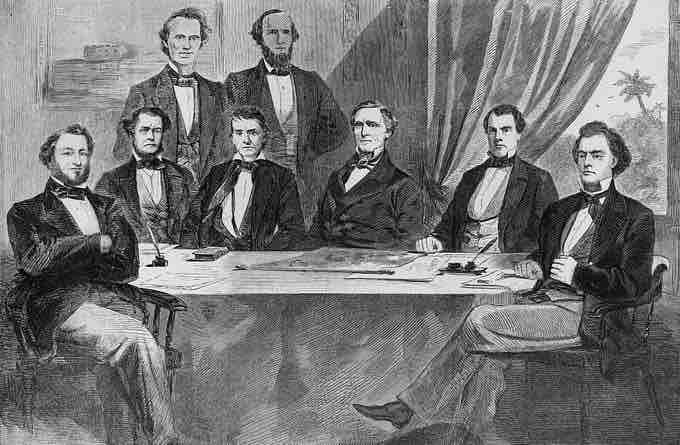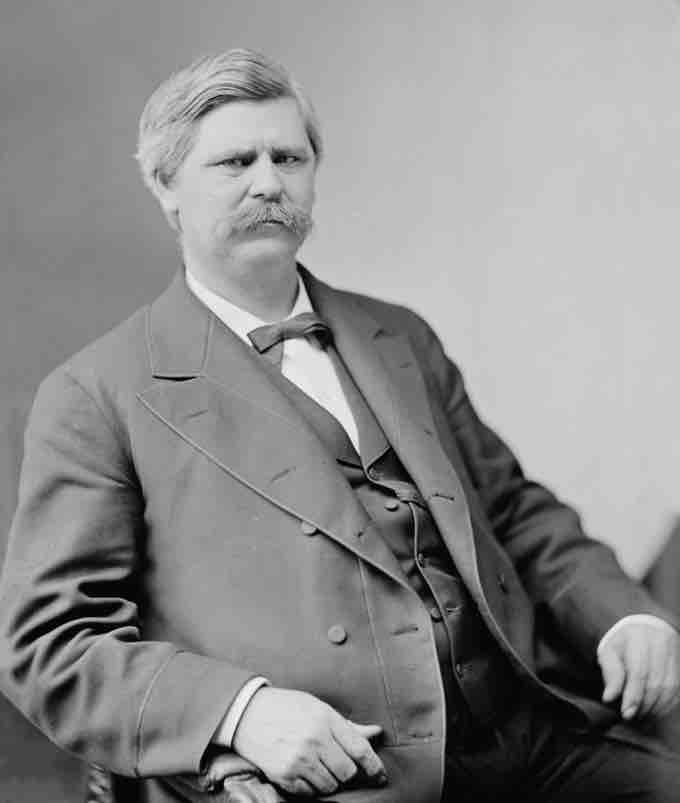States' rights, one of the primary platforms for secession, was an enduring issue in Confederate politics that caused tension between state leaders and President Jefferson Davis.

Illustration of Confederate cabinet, Harper's Weekly, 1861
Front row, left to right: Judah P. Benjamin, Stephen Mallory, Alexander Stephens, Jefferson Davis, John Henninger Reagan, and Robert Toombs. Back row, standing left to right: Christopher Memminger and LeRoy Pope Walker.
Davis clashed with powerful state governors who used states'-rights arguments to hamper mobilization plans. Governors and state legislatures, fearing that Richmond would encroach on the rights of the states, withheld soldiers and funds from the war effort. The first conscription act in North America authorizing Davis to draft soldiers was viewed as the, "essence of military despotism."
Governor Zebulon B. Vance of North Carolina, a powerful advocate of states' rights, frequently opposed Davis. Vance was particularly opposed to conscription efforts in North Carolina, limiting recruitment success in that state. Vance's work to mitigate harsh Confederate conscription practices inspired his nickname, “War Governor of the South.” North Carolina was also the only state to observe the right of habeas corpus during the war. Vance insisted that a portion of supplies smuggled into North Carolina by blockade runners be given to the state, despite need elsewhere. Georgia's governor Joseph Brown also spoke out against attempts by Davis to expand the rights of the Confederate central government.
Davis also feuded bitterly with his vice president. Vice President Alexander Stephens was a strong proponent of states' rights, placing this principle above military considerations. Throughout the war, Stephens denounced many of the President's policies, including conscription, suspension of the writ of habeas corpus, impressment, various financial and taxation policies, and Davis' military strategy.
Despite political differences, no political parties were formed within the Confederacy. Without a two-party system, electoral protests tended to be narrowly state-based. The 1863 midterm elections became mere expressions of futile and frustrated dissatisfaction. The lack of a functioning two-party system prevented the formulation of any effective alternatives to the conduct of the war by the Davis administration.

Zebulon Baird Vance, ca. 1870s
Zebulon Vance, Governor of North Carolina, challenged the central Confederate government.